Due to its inherently violent nature, one of the most consistently controversial genres in film history is the action genre. Dating back to the early 1930s, the influx of violent gangster films being produced at the time was a primary driving factor for the Production Code being implemented. Action films have been controversial over the years for numerous reasons, including exponential levels of gratuitous violence, the glorification of criminal activity, and the resulting copycat crimes that stem from viewing violent films.
Although divisive, many controversial action films have grown to be beloved by both audiences and critics alike. A significant number of the most controversial action films are now considered among the greatest films of all time.
10 Branded To Kill Satirizes Yakuza Violence
Seijun Suzuki's Branded to Kill proved to be so controversial that the director was blacklisted from making movies in Japan for ten years. Always pushing the bounds of cinematic possibilities, Suzuki was known for adding absurdist, postmodern sensibilities to standard B movie projects. Instead of featuring straightforward violence, Branded to Kill contains slapstick comedic violence that pokes fun at the clichés of the yakuza genre.
Nikkatsu studio executives were so livid at Suzuki's film that they initially refused to release the film until a lawsuit ultimately forced them to. Despite its controversy, Branded to Kill would go on to gain a cult following and has influenced countless directors, including Quentin Tarantino, John Woo, Park Chan-wook, and Jim Jarmusch.
9 I Saw The Devil Is One Of Cinema's Most Depraved Films
Kim Jee-woon's highly depraved I Saw the Devil is an action revenge thriller that offers some of the most jarringly brutal scenes in film history. Initially, the Korea Media Rating Board refused to release the film theatrically until several cuts were made. For the international release, Kim reimplemented all the scenes cut from the Korean release, yet removed other sequences, such as an overtly graphic rape scene that was included in the Korean release.
The polarizing nature of I Saw the Devil has led some to label the film offensive, while others have hailed it as a masterpiece. Rolling Stone Magazine included the film on its list of 20 scary movies you have never seen.
8 Hero Sparks A Political Debate
Zhang Yimou's Hero is arguably the most beautiful and poetically crafted action film ever made. The film is so visually dazzling that it is more reminiscent of ballet rather than a traditional action film. Zhang, the leading figure of China's Fifth Generation of filmmakers, drew controversy for Hero, with many viewing his venture into blockbuster action cinema as a form of selling out.
Zhang's films throughout the 1980s and 1990s were more independent-minded, with an emphasis on social and governmental critique. Several of the films Zhang made during this period were banned from release in China. However, Hero sparked a political debate after several scholars claimed Hero justified Chinese despotism and reinforced Chinese Communist Party ideals of nationalism, which Zhang had previously criticized throughout his career.
7 Get Carter Is One Of The Greatest British Films Ever Made
Released in 1971, Get Carter stars Michael Caine as a gangster hellbent on revenge following the death of his brother. At the time of its release, the film received mixed reviews, with many critics complaining about the film's gritty violence, overt sexuality, and the amorality of the protagonist. In the United States, Get Carter was given an X rating, while internationally, the film faced many censorship issues.
Retrospectively, Get Carter is hailed as one of the great masterpieces of British cinema. The British Film Institute, Total Film, and Time Out London have all ranked Get Carter among the greatest British films of all time.
6 Natural Born Killers Attacks The Media Industry
One of the most controversial films of all time, Oliver Stone's Natural Born Killers, caused an uproar for multiple reasons. First and foremost, many in the media industry took offense to how Natural Born Killers blamed the media for glorifying criminals and transforming them into celebrities. Second, the film itself is incredibly violent. Stone had to make several cuts to the film in order to avoid an NC-17 rating. Several countries, including Ireland, banned the film completely.
Lastly, Natural Born Killers has been blamed for numerous copycat crimes that have been allegedly inspired by the film. While there are dozens of apparent copycat crimes related to Natural Born Killers, the most high-profile case was the Columbine High School Massacre. The initials "NBK" were used as a code term by the two killers.
5 Scarface Played A Major Role In The Establishment Of The Production Code
The early 1930s in Hollywood saw the emergence of the gangster genre through films such as The Public Enemy, Little Caesar, and Scarface. Scarface emerged as the most controversial of the genre and struggled mightily just to be released. Even though the Hayes Office did not have the power to remove scenes from films, they continually delayed the release of Scarface until its violence was toned down and scenes were included to condemn criminal life.
Scarface was banned from release in several cities and states throughout the country and caused outrage from multiple Italian American organizations. Two years after the film's release, the Production Code was created to ensure films would not contain the same level of violence as Scarface.
4 Dirty Harry Is One Of Clint Eastwood's Most Iconic Roles
In a career full of memorable roles, Dirty Harry has emerged as one of Clint Eastwood's most iconic performances. Highly controversial upon its release in 1971, Dirty Harry became engulfed in scandal for its depiction of police brutality, its politics regarding criminals' rights, and the overall nature of law enforcement. The kidnapping of a school bus full of children depicted in the film inspired multiple, real-life copycat crimes.
Dirty Harry is now widely regarded as one of the greatest films of all time. The commercial success of the original film led to four sequels. In 2012, Dirty Harry was inducted into the National Film Registry.
3 Battle Royale Is One Of Japan's Most Controversial Films
The final film directed by famed Japanese filmmaker Kinji Fukasaku, Battle Royale is one of the most controversial films in Japan's history. The film's plot focuses on a group of middle school students who are forced to fight to the death by a totalitarian government. Resentment and disapproval were aimed at Battle Royale for its graphic violence involving children.
Battle Royale was banned in several countries and was not shown theatrically in the United States for over a decade after the film's initial release. Toei Company executives refused to sell Battle Royale to distributors in the United States over the fear of lawsuits stemming from the film's violent content.
2 The Wild Bunch Brings Unprecedented Violence To The Western
Sam Peckinpah's The Wild Bunch is a revisionist western that brought unprecedented violence to a story about the death of the Wild West in the early twentieth century. The Wild Bunch pioneered modern editing techniques, multi-camera action, and slow motion to display a never-before-scene amount of carnage on the silver screen. Many scholars have noted the connections between The Wild Bunch and the raging violence of the Vietnam War.
The Wild Bunch premiered during the early days of the MPAA rating system, which initially gave the film an X rating before ultimately deciding to give the film an R rating. During the early 1990s, a newly restored print with additional scenes was set to be released, which shockingly was given an NC-17 rating. After an appeal, the original R rating was restored.
1 Bonnie And Clyde Opens The Floodgates Of Violence In American Culture
As the 1960s progressed, the enforcement of the Production Code became less and less severe, culminating with the release of Bonnie and Clyde in 1967, which contained the most graphic violence ever seen in film up until that point in time. Bonnie and Clyde was one of the first films to utilize squibs, small explosive chargers placed on actors to simulate being shot by bullets.
Despite the controversy surrounding Bonnie and Clyde, the film was a box office hit that connected with the emerging counterculture youth. Now, over fifty years after the film's release, Bonnie and Clyde is considered one of Hollywood cinema's seminal films.

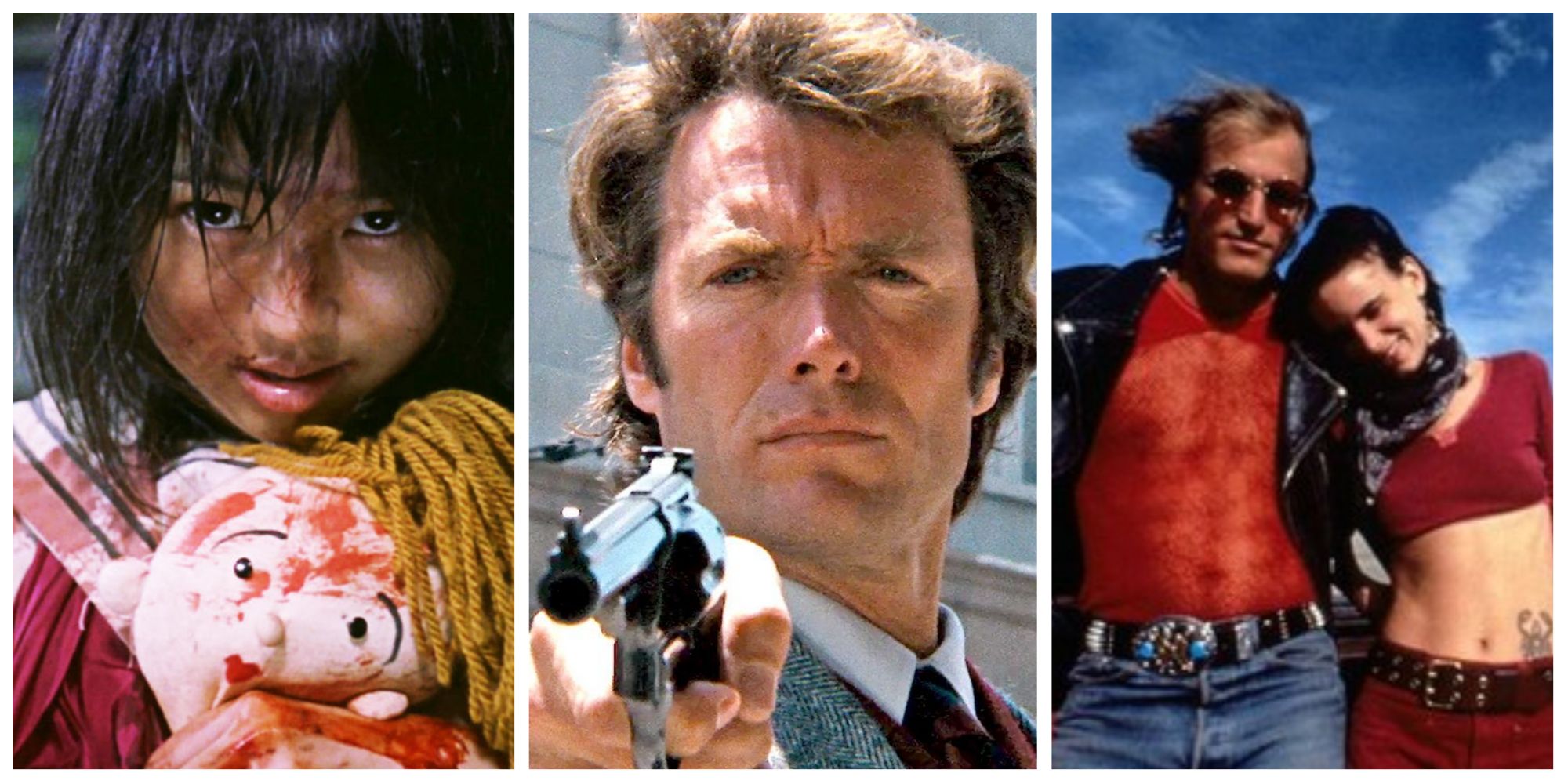
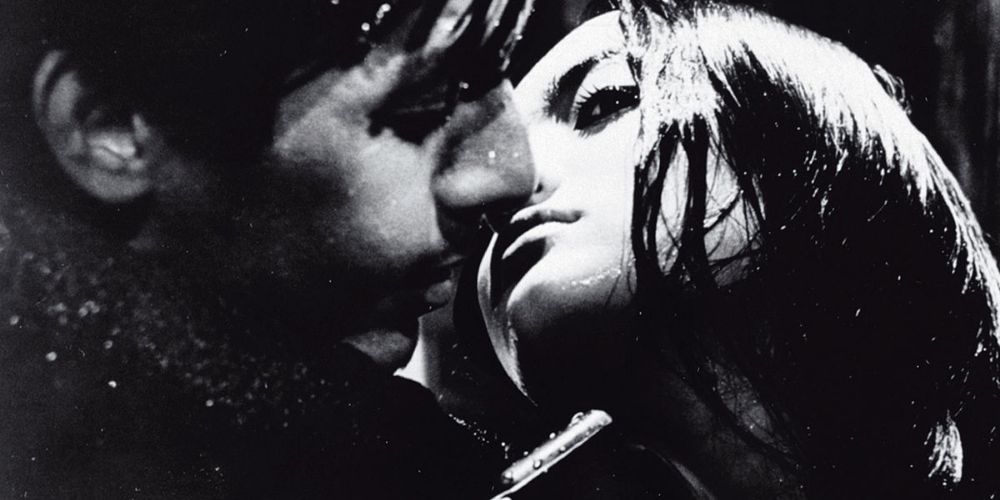
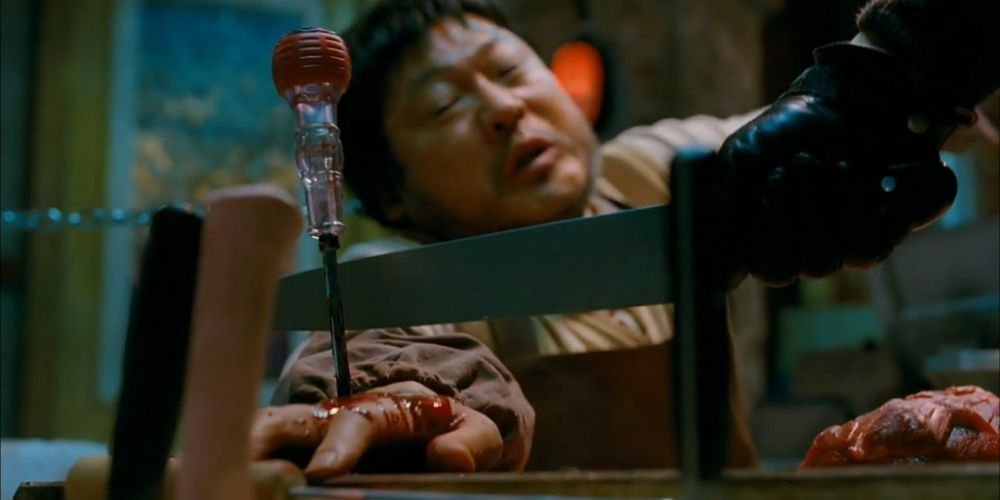

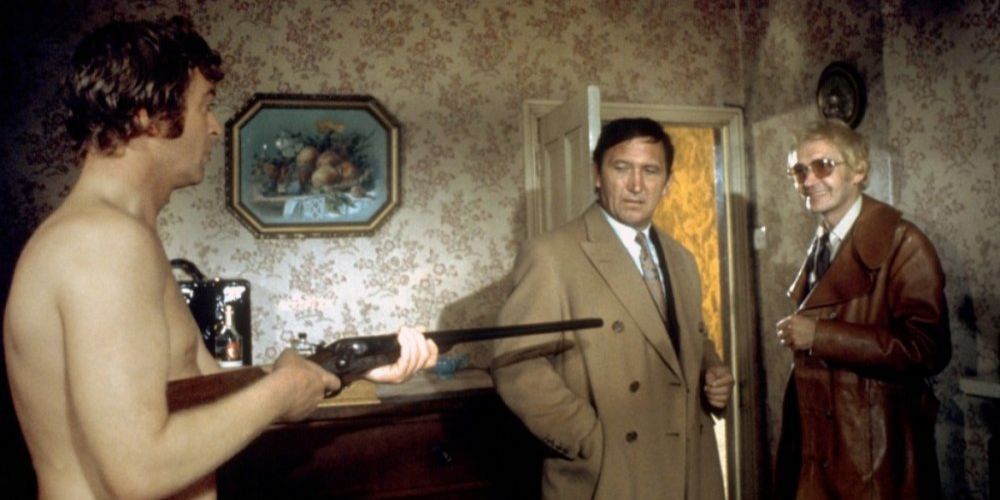
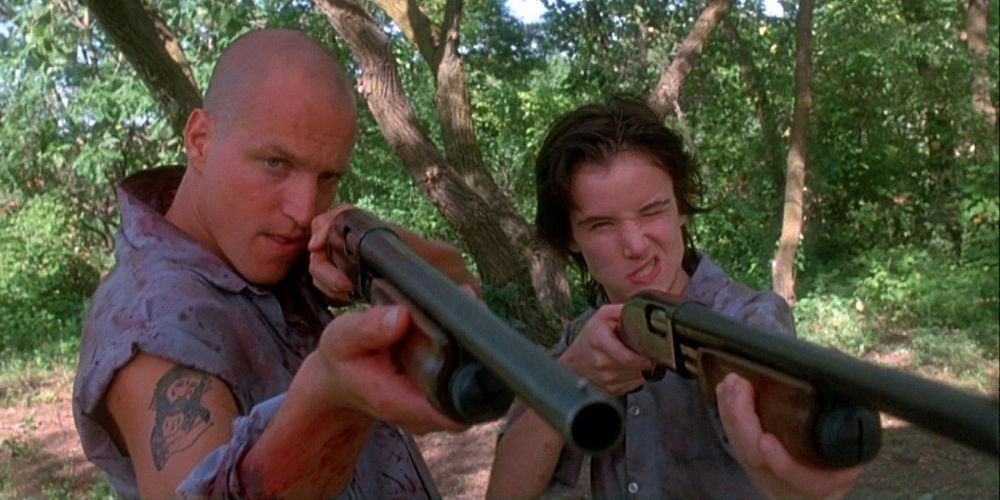
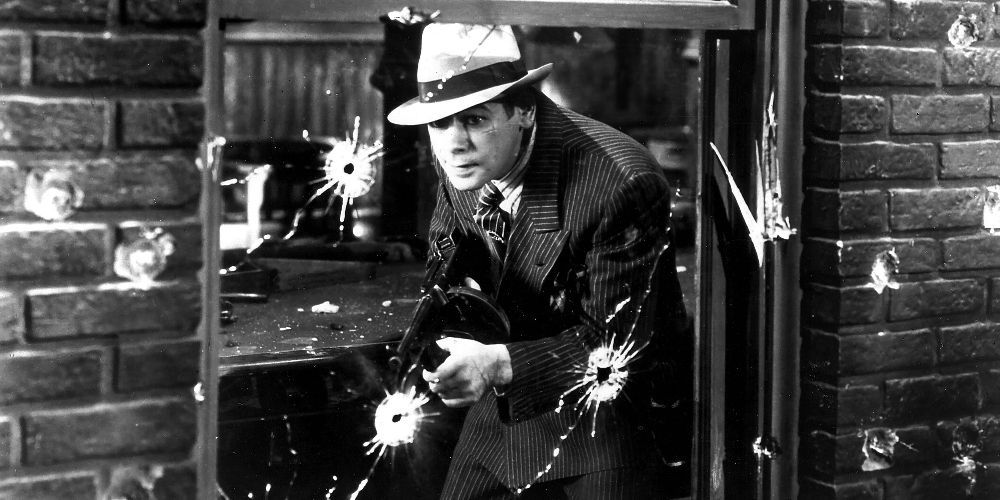
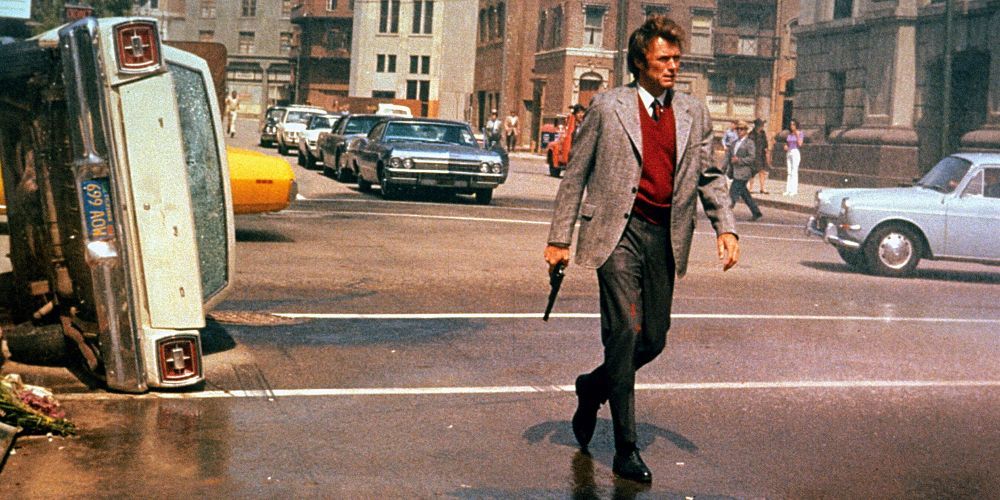
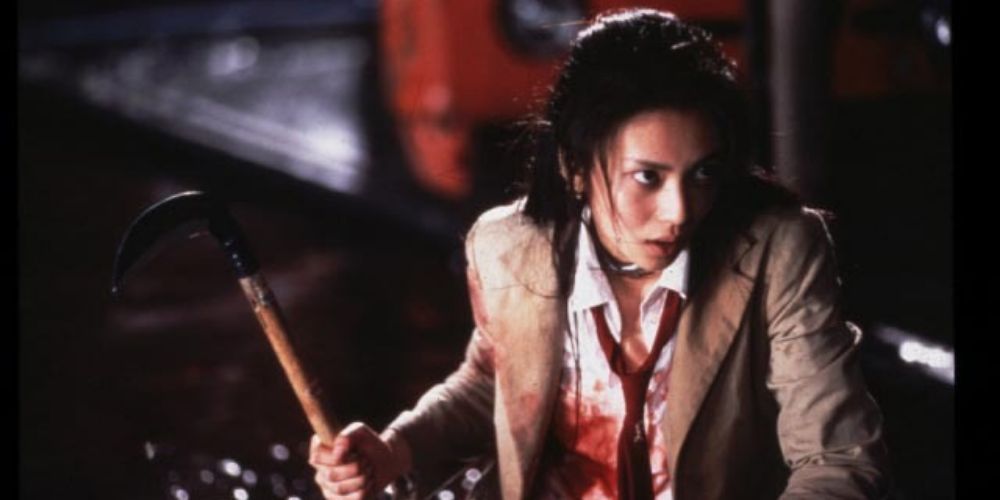
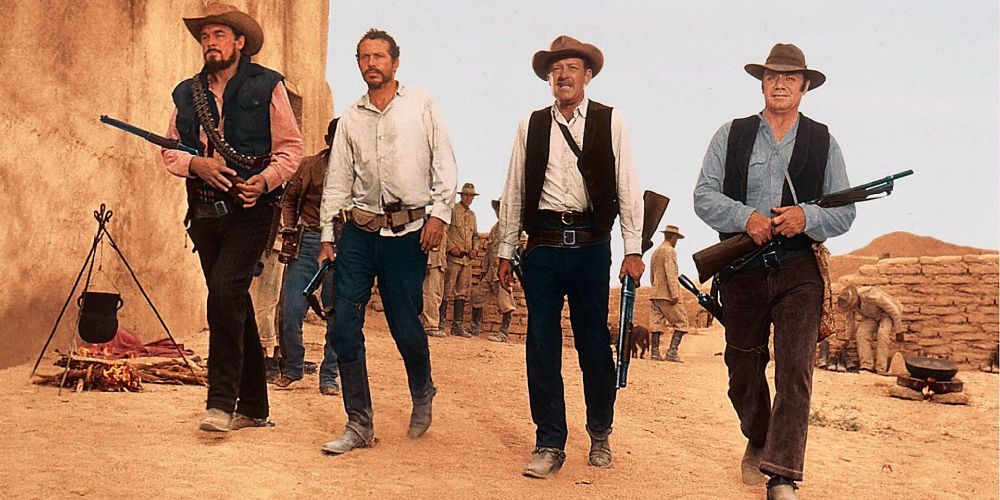
-1.jpg)